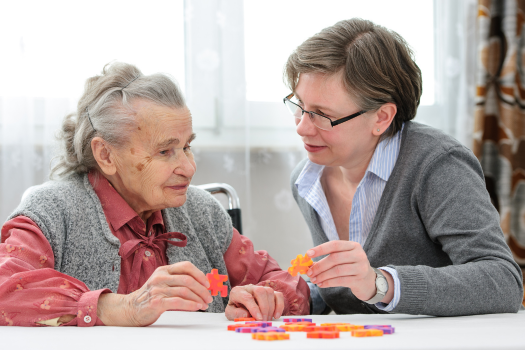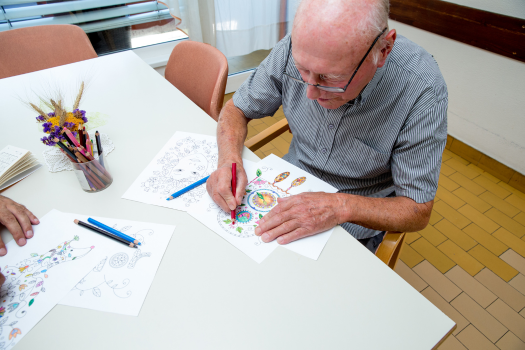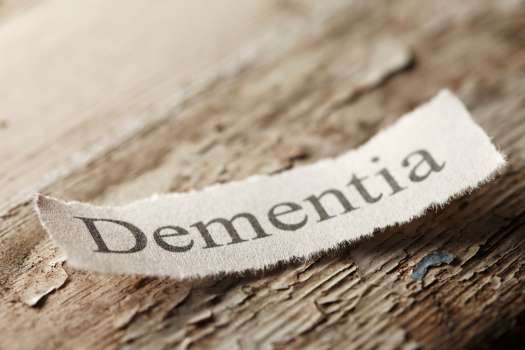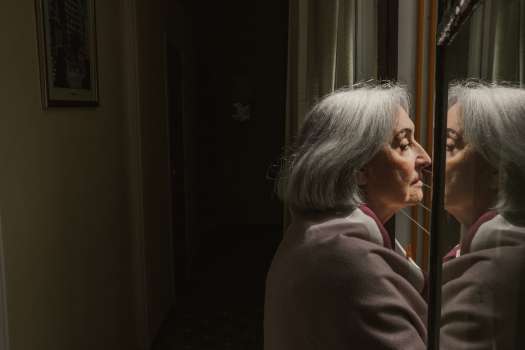
Dementia is often used as a general term for conditions associated with memory loss. Affecting more than six million Americans, Alzheimer’s disease is the most common form of dementia, and it’s the one that most often affects older adults, according to the Alzheimer’s Association. For this reason, we’ll use this form of dementia as a general guide for what typically happens during dementia.
Symptoms May Be Barely Noticeable at First
It’s common for symptoms to be very minor or barely noticeable during the early stages of dementia. This is when changes in brain activity are just beginning to produce symptoms. With Alzheimer’s, the neurons that transmit nerve impulses are often affected first, according to the National Institute on Aging. This typically involves parts of the brain associated with language, reasoning, and social behaviors.
Memory issues are typically noticed first, especially with Alzheimer’s. This is when seniors may begin to forget where they placed certain things or lose their train of thought when speaking.
Behavior May Change Over Time
Another thing that happens with most common forms of dementia is changes in behavior. With Alzheimer’s, this may mean your loved one suddenly begins to use language that’s clearly out of character.
Behavioral changes also tend to occur gradually. Still, some of the changes in behavior may be jarring at times, while others might make it difficult to provide care. Such changes may involve:
- Aggression and anger
- Anxiety and agitation
- Hallucinations and/or confusion
- Suspicion and delusions
Caring for seniors with dementia can be challenging for family caregivers. Luckily, there is dementia care Reston families can rely on. Professional dementia caregivers help seniors with dementia stay safe and comfortable at home by preventing wandering, providing cognitive stimulation, and assisting with household chores.
Daily Routines May Change (or Need to Be Altered)
These are changes that typically occur as internal processes in the brain are increasingly disrupted or altered. For instance, sleeping patterns may change to the point where it’s not easy for a loved one with dementia to sleep soundly through the night. This could lead to confusion about the time of day or contribute to issues with wandering.
With Alzheimer’s, there’s a type of later-day confusion, referred to as sundowning, that might require adjusting routines. In this instance, you may need to shift more demanding or involved tasks to earlier in the day when your loved one is likely to be more agreeable.
Quality of Life Is Often Affected
This is more likely to be the case in the later stages of dementia, when changes in the brain are more widespread. Quality of life may be affected in the sense that there’s increased confusion and a loss of independence to some extent as more care is needed to maintain personal safety. Even with situations like this, diligent and customized care may play a role in maintaining comfort.
If your senior loved one has been diagnosed with a serious condition and needs help with tasks like meal prep, transportation, bathing, and grooming, reach out to Assisting Hands Home Care, a leading provider of home care Reston families can trust. We also offer comprehensive care for seniors with dementia, Alzheimer’s, and Parkinson’s.
Be Observant when Providing Care
If you’re providing care on some level for an aging loved one with dementia, be as observant as possible. It’s important to do this because the stages typically associated with dementia may vary in duration and nature. It’s also beneficial if dementia care involves:
- Reporting any noticeable changes in symptoms
- Discussing concerns with your loved one’s doctor
- Adjusting the level of care based on what’s needed
- Considering home care if care requirements become too demanding
There are a variety of age-related health conditions that can make it more challenging for seniors to live independently. However, many of the challenges they face can be easier to address if their families opt for professional elder care. You can rely on expertly trained caregivers to keep your loved one safe and comfortable while aging in place. Reach out to us at Assisting Hands Home Care if you need compassionate professional care for your loved one. Call one of our dedicated Care Specialists today to learn about the high quality of our in-home care services.








